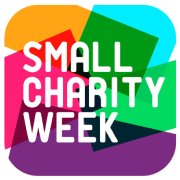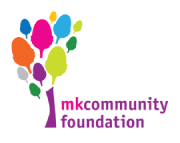You are here
- Home
- Resources
- Small Charity Week 2020
- Section 4: Collaborative Leadership in the Voluntary Sector
Section 4: Collaborative Leadership in the Voluntary Sector
This section will take around 45 minutes to work through and there are links to additional materials if you’d like to find out more.
The previous sections have explored the importance of collaboration and of leadership in the voluntary sector. But what about when you put these two concepts together?
Collaborative leadership (and related ‘collective’, ‘shared’, or ‘distributed’ approaches) builds on notions of leadership as beyond just individuals in hierarchical positions and have a particular attraction for situations where there is no dominating authoritative voice, such as in collaborations involving participants from across the voluntary, public, and private sectors. However, as Professor Vangen pointed out in Section 2:
Our research suggests that collaboration is not easy and that there are no easy answers for those who seek to manage and lead collaborations. Yet it is possible to achieve good outcomes – certainly better outcomes than would have been the case without collaboration – if you have a good understanding of how it works. Not only are the social issues typically addressed via collaboration inherently complex, collaborations are similarly complex and dynamic to the extent that much of what happens in the spirit of collaboration is not within the control of individual managers. What kind of leadership then is appropriate to these situations?
In the Centre for Voluntary Sector Leadership, we believe that it is important to take a broad definition of leadership and to think about leadership as ‘making something happen’ rather than it being attributed to and individual or a ‘lone hero’ figure. We see leadership as something that is shared, that can be collaborative and where many individual collectively makes a difference to an organization, a society or indeed the voluntary sector. In terms of leading a collaboration, our observation is that leadership must involve being both gentle and tough at the same time and that it is necessary to both nurture relationships on the one hand and taking a directive clear line on the other. So as an individual seeking to lead a collaboration, you can expect to engage in activities that are highly facilitative – concerned with embracing, empowering, involving and mobilizing partners – whilst at the same time being adept at manipulating agendas and playing the politics. It means accepting and managing problems with power and trust and so on. And most of all, it requires continuous nurturing and a lot of attention to detail.
Professor Siv Vangen
In the next two videos Peta Wilkinson from Willen Hospice and Ian Revell from MK Community Foundation talk about what leadership in the voluntary sector means to them.
Peta Wilkinson - 'Leadership in the Voluntary Sector’ (2:50 minutes)
Ian Revell – ‘Leadership in the Voluntary Sector’ (2:34 minutes)
Some of the things Peta and Ian talk about reflect assumptions made about the voluntary sector. In the next video Professor Siv Vangen talks about some of the assumptions made about different organisations in collaborative contexts and the importance of considering different contexts in periods of change.
‘Leading in Contexts of Change’ (2:36 minutes)
CVSL Briefing Papers
The CVSL team has prepared a series of three briefing papers that explore the topic of leadership in the UK voluntary sector. The first of these reviews the academic literature concerning the debate about leadership within the sector, but it goes on to open this up wherever possible to explore the broader influence of debates on leadership which have influenced thinking about leadership in the sector.
Paper 2 focuses on the shape of the leadership development landscape in the UK voluntary sector and examines some of the major constraints facing the further enhancement of leadership development for leaders across the sector.
The third, and final paper in this series, returns to the broader leadership studies literature and examines in particular the relevance of contemporary debates that focus on critical collective leadership perspectives. In brief these include shared leadership, leadership as relational practice, and the concept of leaderful organisations. It then summarises the implications of these approaches for leadership development and for voluntary sector research.
We saw previously from Dr Owain Smolović Jones how assumptions about what leadership is can be ‘traps’ in terms of how we work together and equally, assumptions about collaboration and collaborative leadership itself can act in a similar way. It is important therefore to maintain a critical approach to these different concepts in order to try to avoid potential traps of leadership and issues that lead to collaborative inertia.
In the below videos Owain explores collaborative leadership in the Covid-19 crisis from a critical perspective.
He identifies the movement in discourses of collaboration to 'charitization', or the shift in thinking whereby services previously thought of as core prerogatives of public services funded from general taxation become voluntaristic and subjected to the moods and capacity of markets.
Building from this point he asks why the thinking and practice of collaborative leadership shies away from material inequalities - people's wages, terms and conditions and the degree of risk they are subjected to at work. Put simply, in any crisis - this one included - we are not all in it together and any practice or theory needs to be respectful of this fact and work within its tensions. More talk and communication can't overcome this blunt material reality.
In conclusion, Owain says that the crisis has presented a plethora of experiences that leadership scholars and practitioners can learn from - community solidarity and mutual aid - that holds the potential for reshaping how leadership is conceptualised and practiced in the future.
In this first video, Owain introduces what is included in this critical approach.
Notions of Collaborative Leadership – Introduction to a Critical Approach’ (0:56 minutes)
In this next video, Owain discusses the ‘charitization’ of society that has been seen in the Covid-19 response.
‘The Charitization of Society’ (3:53 minutes)
The next video gives an overview of how collective approaches can overlook intrinsic inequalities.
‘Overlooking Inequalities in Collective Leadership’ (5.35 minutes)
Finally, Owain suggests what the implications might be for looking at leadership in this way.
‘Implications for Leadership and Working Collaboratively’ (2.36 minutes)
Despite the potential negativity inherent in this critical approach there are many positive aspects of the response to Covid-19 within the voluntary sector that can be built upon in the future. What’s clear is that working and leading in a collaborative way is likely to continue to be emphasised as we look to the future post-Covid. However, as we’ve made clear with this online event, there are some significant pressures that organisations are experiencing that not only make collaborating difficult in practice but can also potentially exacerbate existing inequalities.
CVSL offers tools and courses to support you in your journey to work more collaboratively and the rest of this section will explore these.
CVSL Courses and Learning Clubs
CVSL Courses
CVSL offers a variety of courses that go into more detail on some of the subjects we’ve covered in this online event. These contain between 15 and 24 hours of study. They’re designed to last around 5 weeks, but you can take them entirely at your own pace. So, if you are looking to find out more about leadership in the voluntary sector look no further than CVSL’s free courses on:
- Developing Leadership Practice in Voluntary Organisations
- Collaborative Leadership in Voluntary Organisations
- Involving Volunteers (with Volunteer Scotland)
In the following video Peta Wilkinson from Willen Hospice talks about the practical benefits of the courses to her organisation.
‘Benefits of the CVSL Courses’ (2:38 minutes)
Here are some brief quotes from students' reviews of the courses:
- "This course has really challenged my views on leadership and leaders... [it] demonstrates the importance of looking outside our own organisations and ways of working to find new solutions to the challenges we face."
- "The course has helped me to think differently about leadership – and how much there is still to learn. I hope that one of the things I will do differently is to think less traditionally – about where and how we work together – about telling stories – about listening and encouraging and critiquing."
- "Participating on this course has really opened my eyes and altered my approach to working – even the reason for undertaking the course have been questioned."
The OU also have a variety of other courses about the voluntary sector available on our OpenLearn platform. You can some listed on the CVSL course page.
CVSL Learning Clubs
CVSL also offer supported learning for organisations who are keen to study the courses in a more structured way through our ‘Learning Clubs’. In the following podcast, Dr Fidèle Mutwarasibo who is a Visiting Research Fellow at CVSL, discusses a recent learning club with learners from Yorkshire.
In the following podcast, Louise Ennis - formerly Hubs Development Manager at Community First Yorkshire - and Dr Catherine Oakley - Executive Director at The Rowntree Society discuss their experiences with the North Yorkshire Local Learning Clubs. The learning clubs brought together people involved in the activities of small charities based in North Yorkshire to share their learning from CVSL’s online courses on Leadership Development in voluntary organisations and Collaborative Leadership in voluntary organisations. The research by academics associated with CVSL informs the courses’ content.
We have also delivered learning clubs in Milton Keynes and in the next video Ian Revell from MK Community Foundation talks about how this was of benefit to them.
‘CVSL Learning Club Benefits’ (3.05 minutes)
To find out more about the learning clubs please contact us.
Don’t forget you can also find out more about the ongoing research from our PhD students.
Reflections and Feedback
If you’re reflecting on these issues in relation to your own practice and would some more information or support, please contact us.
Next: Thank You and Closing Remarks – the next section includes a closing statement from Carol Jacklin-Jarvis, the Director of CVSL.





